“Follow the money” is a catchphrase made popular in the 1976 movie, “All The President’s Men,” based on the actual events of the Watergate Break-in and suggests a money trail or corruption scheme within the political arena.
While campaign receipts are no guarantee of how an elected official will vote on a particular issue, when a politician’s vote comes as a surprise to their constituents and political pundits, the behind-the-scenes world of money and power may shed light on the matter.
The situation of campaign financing in the state of Tennessee is a complex web of individual and Political Action Committee (PAC) contributions and receipts to and from each other.
The Tennessee Bureau of Ethics and Campaign Finance defines a PAC as a “multi-candidate politician campaign committee that participates in any state or local election. ‘Multi-candidate committee’ is defined as a committee that makes expenditures to support or oppose two or more candidates for public office or two or more measures in a referenda election. T.C.A. 2-10-102(9).”
The State of Tennessee’s Online Campaign Finance webpage includes a searchable database for contributions and expenditures to candidates and PACs and from candidates, PACs, private individuals or businesses/organizations.
The complexity, special interests and influence involved in the 2016 elections and potentially the “yes” votes on Governor Haslam’s IMPROVE Act is illustrated through a small sample of the 99 House seats elected in 2016.
JOBS4TN is a PAC that in 2016 received $157,500 in contributions, essentially all of it at $150,000 from Governor Bill Haslam. The PAC paid out $158,000 to 48 recipients in increments of $2,000 to 30 recipients; $5,000 to 9 recipients; and, $6,000 to 9 recipients.
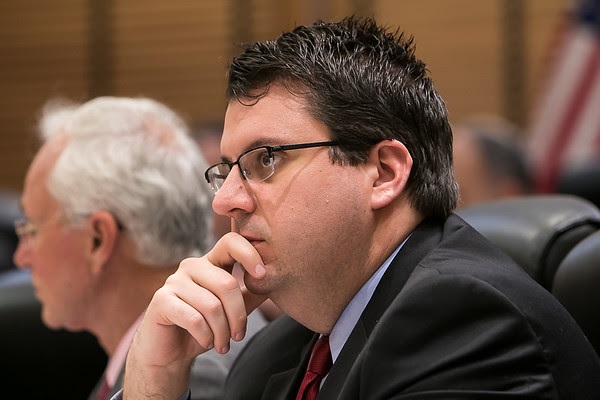
Thirty-four JOBS4TN recipients voted “yes” on the IMPROVE Act, and just nine voted “no.” Of the remaining five recipients, two are PACs and received $6,000 each, two are no longer in office and one was not elected. Seven of the nine $5,000 recipients voted “yes,” as did all seven of the voting $6,000 recipients.
In fact, in 2016 the Haslam family, owners of Pilot Corporation, one of the largest privately held companies in the United States contributed a total of $104,050 directly to the campaigns of individual candidate or PACs, in addition to the Governor’s $150,000 to JOBS4TN. The $104,050 in Haslam family contributions that did not go to the JOBS4TN PAC went to 7 other PACs and 15 candidates, 5 of whom were eventually defeated.
The 10 Haslam-recipient individual candidates who went on to be elected were Sen. Steve Dickerson (R-Nashville) at $14,000; Rep. Eddie Smith (R-Knoxville) at $9,000; House Speaker Beth Harwell (R-Nashville) at $8,500; Sen. Richard Briggs (R-Knoxville) at $3,000; Rep. Rick Tillis (R-Lewisburg) at $2,000; Rep. Roger Kane (R-Knoxville) at $1,000; Sen. and Lt. Gov. Randy McNally (R-Oak Ridge) at $1,000; Rep. Art Swann (R-Maryville) at $1,000; Rep. Michael Curcio (R-Dickson) at $2,000; Sen. Becky Massey (R-Knoxville) at $2,000. All but Rep. Kane voted for the IMPROVE Act.
Rep. Eddie Smith (R-Knoxville) received a total of $151,340.54, of which $69,829.60 was from PACs. More notable is that Haslam family members James III, Jim, Natalie and Susan, contributed a total of $9,000 and Governor Haslam’s PAC, JOBS4TN, contributed $6,000 in 2016 and $4,500 in 2014.
The only other individual candidate, elected or unelected, who received more in contributions than the $9,000 that Smith got directly from the Haslam family was Sen. Steve Dickerson (R-Nashville) at $14,000. Even Speaker Harwell received just $8,500.
Rep. Barry Doss (R-Leoma), who for the first time since being elected in 2014, served on the House Transportation Committee, not just as a member, but as the Chairman which is also his first time serving as Chairman. Doss received $42,490 in campaign contributions, of which $10,290 was from individuals, candidates or businesses/organization and $32,200 was from PACs.
Doss’s single highest contribution of $2,000 came from Governor Haslam’s PAC, JOBS4TN. Other notable PAC contributions came from IMPROVE Act beneficiaries and supporters including Rogers Group Inc. PAC at $1,500; Tennessee Highway Contractors PAC at $1,000; and Tennessee Oil Marketers PAC at $1,000.
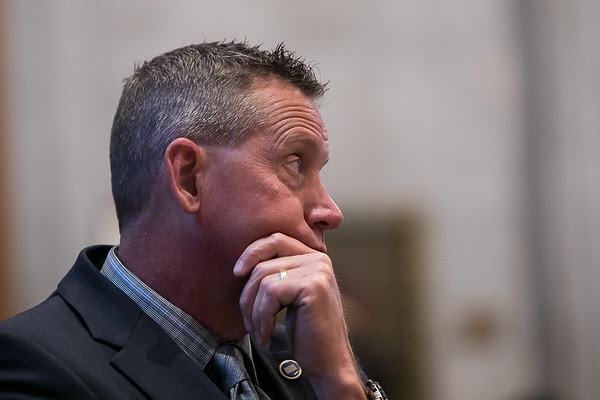
Newcomer Rep. Rick Tillis (R-Lewisburg) replaced Billy Spivey, who did not run in 2016. Tillis received $85,756.70 in contributions, with just under half, $39,900, coming from PACs. Noteworthy contributions Tillis received were $1,000 from James Haslam II and another $1,000 from Natalie Haslam, as well as $2,000 from Governor Haslam’s PAC, JOBS4TN.
As reported by The Tennessee Star, after casting his “yes” vote for Governor Haslam’s IMPROVE Act, which he switched from a “no” vote, Tillis was sent a message from his constituents via a banner attached to his company’s billboard calling him a “liar.”
Another newcomer, Rep. Michael Curcio (R-Dickson) received a total of $90,798 of which more than half at $47,498 came from PACs. Notable contributions in 2016 and previously in 2014 came from Governor Haslam’s PAC, JOBS4TN, at $2,000 as well as James Haslam II and Natalie Haslam at $1,000 each.
Rep. Sam Whitson (R-Franklin) is the newcomer who replaced Rep. Jeremy Durham, perhaps the most outspoken opponent to Governor Haslam’s Medicaid expansion program, Insure Tennessee.
Whitson received the highest campaign contributions of all the Republican freshman legislators at $144,125.90, of which $59,637.02 was from PACs and $84,488.88 from individuals, candidates or businesses/organizations.
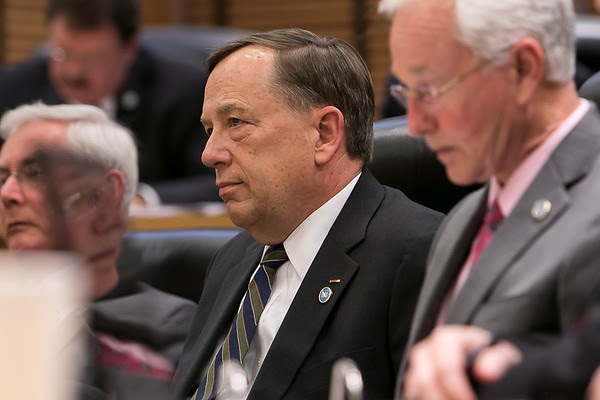
More notable than the split between PAC and non-PAC contributions is who actually made the contributions.
For instance, Governor Haslam’s PAC, JOBS4TN, contributed $2,000 and Beth Harwell, from her Harwell (House) Beth Halteman campaign account, contributed $1,500.
Contributions from 13 individuals for a total of $17,250, or an average of $1327 each, reported their employer as CHSPSC, LLC. According to the organization’s website, CHSPSC, LLC, otherwise known as Community Health Systems with a mailing address in Franklin, Tennessee “is one of the nation’s leading operators of general acute care hospitals.”
In addition, the CHS/Community Health Systems, Inc. organization itself contributed $7,600.
Other healthcare or insurance-related contributors to Sam Whitson’s campaign included Blue Cross Blue Shield of TN PAC at $500, Cigna Corporation PAC at $250, Friends of THA at $750, HCA Tristar Fund at $500, Insurors of TN PAC at $1,000, Lifepoint Tennessee PAC, Merck Sharp & Dohme Corp at $1,000, Tennessee Health Care Association PAC, United Health Group Incorporated at $1,000, Hometown Pharmacy PAC at $500 and Independent Medicine’s PAC-TN at $500.
Once Sam Whitson was elected, he was appointed as a member of the House Health Committee and to the House Transportation Committee and Subcommittee. There were also a number of contributors to Whitson’s campaign with ties to transportation and the IMPROVE Act.
One noteworthy example is John Schroer, Commissioner of the Tennessee Department of Transportation, who contributed $500 to Whitson’s campaign. The only other contribution Commissioner Schroer made to a political campaign in 2016 was $250 to Charles Sargent, Chairman of the powerful House Finance, Ways and Means Committee and vocal proponent of the IMPROVE Act.
Eight people with the last name of Jewell, three of whom are listed as a principal or authorized representative of Tri Star Energy, LLC, contributed a total of $7,300.
According to the company’s website, Tri Star Energy, LLC is a retailer of gas through its Twice Daily convenience store chain as well as a provider of diesel fuel and gasoline to all of Middle Tennessee.
The only contribution Marathon Petroleum Corporation (MPC) based in Findlay, Ohio made to a non-incumbent in Tennessee was $1,000 to Whitson.
According to the company’s website, “MPC’s wholly owned retail marketing subsidiary, Speedway, LLC, is the nation’s second-largest chain of company-owned and –operated retail gasoline and convenience stores.”
“Speedway owns a 29 percent interest in Pilot Flying J Southeast LLC, which is a joint venture between Speedway and Pilot with 123 travel center locations, primarily in the Southeast,” according to Marathon’s website information on Speedway.
Ken Parent, President of Pilot Flying J said of the joint venture, “This is another exciting chapter in a longstanding relationship between Pilot Flying J and Speedway.”
Lobbying groups that supported and would benefit from the passage of the IMPROVE Act, some of which are members of the Transportation Coalition of Tennessee, and contributed to Sam Whitson’s campaign were Assn Builders & Contractors – Mid. TN Chapter at $250; Caterpillar Employees PAC at $250; Tennessee Highway Contractors PAC at $1,000; Tennessee Professional Engineers PAC at $250; and, Tennessee Chamber of Commerce and Industry PAC at $500.
For comparison purposes against other first-time Republican candidates for House seats, below are campaign contribution highlights for four candidates who, once elected, voted against the IMPROVE Act.
John Crawford (R-Kingsport) received a total of $43,650, of which $25,650 was from 43 PACs and $18,000 from 23 individuals.
Ron Gant (R-Rossville) received a total of $60,275, of which $32,225 came from 111 individuals and $28,050 came from 48 PACs with the largest contributions being $2,000 from Governor Haslam’s PAC, JOBS4TN, and $4,500 from Insurors of TN PAC.
Tim Rudd (R-Murfreesboro) received a total of $72,485, of which $17,800 came from 32 PAC contributions and $54,685 from 90 individual contributions.
Paul Sherrell (R-Sparta) received a total of $32,599, of which $22,000 came from 23 PAC contributions and $11,749 from 32 individual contributions.
“There is no right more basic in our democracy than the right to participate in electing our political leaders,” Justice John Roberts wrote in the Supreme Court’s main opinion in the McCutcheon v. FEC case, which continued, “We have made clear that Congress may not regulate contributions simply to reduce the amount of money in politics or to restrict the political participation of some in order to enhance the relative influence of others.”
But, there is little doubt that the source of funding influences outcomes, even when it comes to topics arguably more important than politics and elections, like health and nutrition.
A New York University Professor who reviewed 168 food studies, said in an interview with Nutrition Action titled “Stacking The Deck, How Industry Funding Can Influence Science and Create Confusion,” that she found all but 12, or just 7 percent, “had results that were favorable to the sponsor.” The professor, further reinforcing how little it actually takes to influence behavior, said that “drug industry literature says that giving doctors a pen and prescription pad is enough to change their prescribing practices.”
In spite of the influence of money, power and celebrity in play, at the conscious and subconscious level, some elected legislators remain faithful to their oath of office each takes before proceeding to business: “I solemnly swear that as a member of this General Assembly, I will, in all appointments, vote without favor, affection, partiality, or prejudice; and than I will not propose or assent to any bill, vote or resolution, which shall appear to me injurious to the people, or consent to any act or thing , whatever, that shall have a tendency to lessen or abridge their rights and privileges, as declared by the Constitution of this state.”

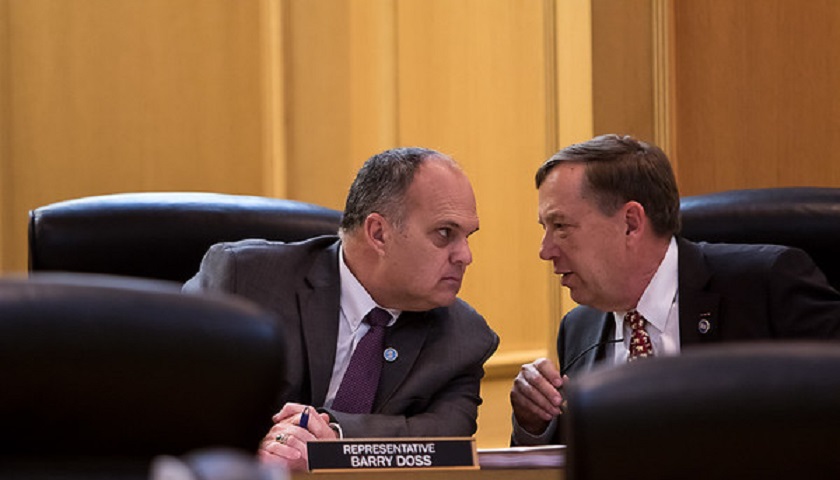

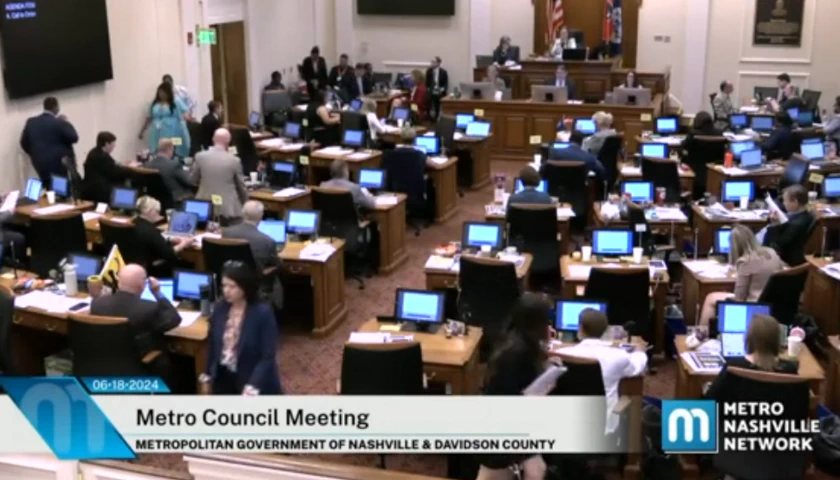

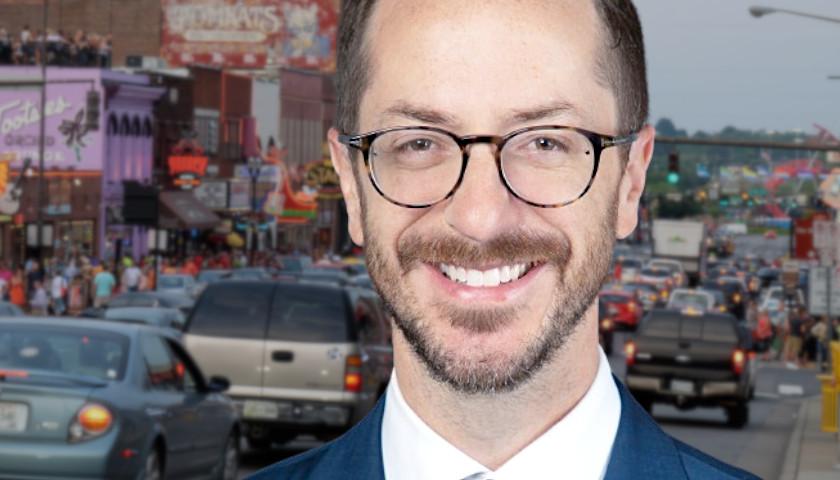
Swann is a sorry representative of the people he is supposed to serve.
Well researched article which made it possible for me to understand clearly how some of those “pretend” conservatives could vote for the Improve Act. It is truly all about the money.
[…] Read more on state lawmakers regarding their votes on the gas tax & registration fee increases and donations from the Haslam family and JOBS4TN PAC, which is mostly funded by Bill Haslam, here: https://tennesseestar.com/2017/05/04/follow-the-money-campaign-receipts-may-shed-light-on-why-some-re… […]
Shame on you greedy legislators- don’t you already have enough of our money? No rational or hype about your generosity in pitiful tax decreases will change your actions. Taxes are too high or you wouldn’t be sitting on a 2 billion dollar surplus minus the $250 million of it you plan on giving democrats for new education funding. As we heard in one presidential campaign you can put lipstick on a pig, but it is still a pig! Oink, oink!